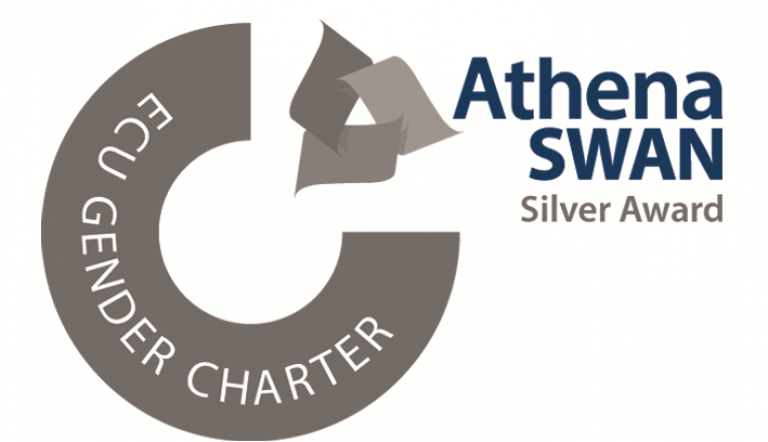In 2021, The Bartlett became UCL’s first faculty to achieve an Athena SWAN Silver Award, following a Bronze award in 2016. This page covers key priorities/objectives up to 2025.

Athena Swan at The Bartlett
In 2021, The Bartlett became UCL’s first faculty to achieve an Athena SWAN Silver Award, following a Bronze award in 2016. The award recognises The Bartlett’s ongoing commitment and work to improve staff and student gender representation, progression, and working/studying environments, and to identifying and addressing challenges facing the faculty.
“I joined The Bartlett in 2019 with a strategic priority to establish a commitment to gender and racial equity in the Faculty that is reflected in our teaching and research, and fair staff and student representation. Our Commitment to Change articulates a manifesto for future built environment education that highlights the roles gender and race play in shaping our environment.
We have invested heavily in producing teaching materials and research workshops that focus on gender and race equity. For us, fair representation means our staff (academic and professional) and student body reflects the demographics of our London location. We have systematically used intersectional data in this application to understand complex challenges for gender equality and to devise appropriate actions.
Prof Christoph Lindner, Dean of The Bartlett
What is Athena Swan
Advance HE’s Athena SWAN Charter was established in 2005 to encourage and recognise commitment to advancing the careers of women in science, technology, engineering, maths and medicine (STEMM) in higher education and research. In May 2015 the charter was expanded to recognise work undertaken in arts, humanities, social sciences, business and law (AHSSBL), and in professional and support roles, and for trans staff and students.
The charter now recognises work undertaken to address gender equality more broadly, and not just barriers to progression that affect women.
Key Objectives/Priorities for 2020-25
Quantitative and qualitative intersectional analysis conducted as part of The Bartlett’s Athena SWAN 2020 application identified 14 key objectives for the period 2020-2025. These are not static, as we are constantly looking to expand our understanding of the intersectional challenges facing the faculty and . The objectives guide our Athena Swan Action Plan, which has now evolved to The Bartlett EDI Action Plan. Our aim is for the EDI Action Plan to develop and evolve over time incorporating other EDI agendas.
- Objective 1: Maintain a Diverse and Effective Athena SWAN Action Plan Implementation Team
- Objective 2: Address the Underrepresentation of UK BAME Men in PGT and PGR cohorts
- Objective 3: Address the UG Awarding Gap for BAME Men
- Objective 4: Pre-empt the Risk of Underrepresentation of Men in UG and PGT Cohorts.
- Objective 5: Increase the Recruitment of Women and BAME Candidates to Academic (Academic, Teaching and Research) Roles
- Objective 6: Increase the Recruitment of BAME Men and Women Candidates to PSS roles.
- Objective 7: Increase the Promotion of Women, especially BAME Women, Academics
- Objective 8: Improve Induction for Women Staff
- Objective 9: Strengthen Career Support to Early Career Researchers
- Objective 10: Invest in PSS Career Development (secondment, training, development opportunities, support for PSS men to reach senior roles, budget)
- Objective 11: Enhance Support to Women On/Returning from Maternity Leave and Men and Women On/Returning from Parental or Carers Leave
- Objective 12: Sustain Athena SWAN Principles in our Working Culture including our Teaching, Research and Day-to-Day Activity
- Objective 13: Reduce Data Inaccuracies and Incompleteness.
- Objective 14: Build Spaces for Ally-ship for Gender Equality
To monitor and support the implementation of the EDI Action Plan we have established three staff working groups to work across the Faculty:
- Diversifying Staff
This group works to:
- Create a working culture that values difference and enables all staff to reach their full potential
- Provide support for career development and academic promotions, particularly for groups which are underrepresented at senior levels
- Support and facilitate the development and implementation of initiatives which address intersectional imbalances at all levels and in all categories of staff
- Diversifying Students
This group works to:
- Support our Access and Widening Participation initiatives to increase the number of underrepresented groups at The Bartlett, particularly Black and Minority Ethnic students
- Ensure our undergraduate, postgraduate taught and postgraduate research students reflect the diverse communities they go on to serve
- Ensure that the curriculum promotes diverse voices and provides students with the breadth and depth of experience they need to address the challenges of the world
- Learning & Communications
This group works to:
- Share the learning gathered from the institutional change that the EDI groups are creating
- Bring in learning and best practice from elsewhere to inform our EDI institutional change work
- Create an honest tone of reflection within communications that highlights both our successes, and challenges
Athena Swan at UCL
UCL is committed to the aims and principles of Athena SWAN and was one of the first universities to sign up to the scheme in 2015. UCL was awarded its first Institutional Bronze award in 2006 and renewed this award in 2009 and 2012. In 2016 UCL achieved a Silver award which was renewed in 2021. You can access the 2016 and 2021 Silver submissions at the UCL Athena Swan SharePoint. Please also use the UCL Athena Swan SharePoint site, curated by the UCL Central Athena Swan Team, for more detailed information, and to access guidance, departmental submissions and examples of good practice.
 Close
Close

